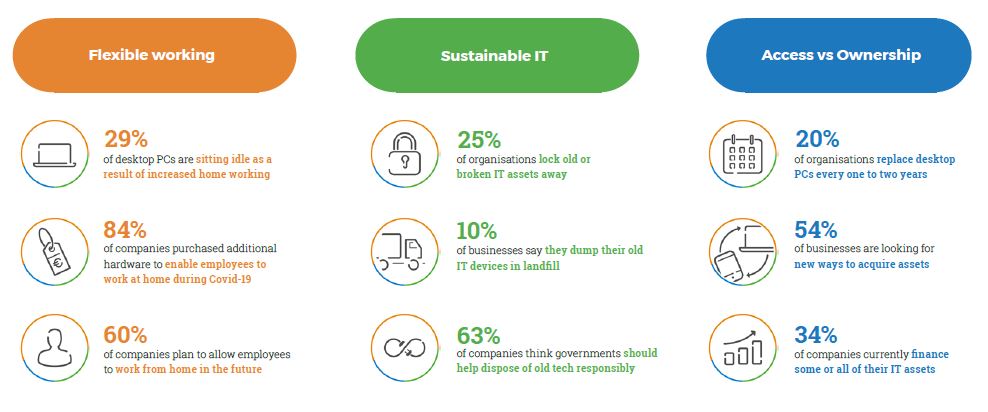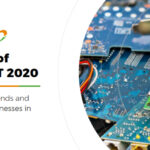As the Covid-19 pandemic emptied offices and created a new generation of mobile workers, businesses around the world were forced to make a rapid and unplanned transition to remote working. For many companies, the IT department became the unsung hero of the crisis, playing a pivotal role in ensuring continuity, resilience and productivity.
Now, as businesses large (500+ employees), medium (200-499), and small (50-199) look to understand the long-term effects of the pandemic, there are still significant challenges for IT managers to overcome to build resilience and manage continued operational disruption and financial pressure.
As our research shows, a big shift is underway, with desktop PCs being retired in favour of mobile technology, such as laptops and tablets – stretching IT budgets and potentially compounding the global electronic waste (e-waste) crisis.
The world already generates 53.6 million metric tonnes of e-waste each year, according to the UN’s ‘Global E-Waste Monitor 2020’ – the equivalent of throwing away 1,000 laptops every second – and the impact of the Covid-19 crisis on these figures is yet to be seen. Both governments and business must confront this growing environmental challenge now, as despite the pandemic, consumer pressure to act on climate change has not disappeared. With e-waste on the rise, flexible working here to stay, and IT budgets forced to go much further than before, there is no shortage of challenges ahead. As this report reveals, the leading IT decision makers are adopting new, more sustainable ways of managing IT that delivers technology’s many benefits – productivity, creativity, collaboration – through access to IT devices, not ownership of them. We discuss the road ahead for IT decision makers, as they balance the demands of business resilience, financial responsibility and sustainability in the context of Covid-19.
KEY FINDINGS

Download the report here to discover how BNP Paribas 3 Step IT Circular Economy model helps customers achieve their sustainability targets.




